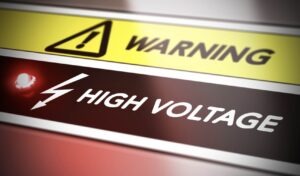
Every now and then you may hear a story on the news about someone who was electrocuted. Sadly, instances of these injuries happen much more often than most people know – and researchers are telling the story with some shocking U.S. statistics:
● At least 30,000 non-fatal electrical shock incidents happen every year.
● 1000 fatal electrical injuries yearly.
● 5% of all burn unit patients are there due to electrical injuries
● 20% of all electrical injuries occur in children – toddlers and adolescents with the highest rate of incidence
Keep in mind that while many of these injuries come from high voltage electricity, Florida does hold the title of the lightning capital of the U.S. – and this plays a huge role in the number of electrocution deaths. All of this is precisely why it is necessary to have laws in place that protect individuals involved in electrocution injuries.
What do you do if it happens to you? What are your next steps after an electrical accident? If you find yourself in this situation, let’s take a look at the law in Florida and how it pertains to your rights.
Types of Injuries
As we’ve pointed out, electrocution injuries do not always happen in the same way. When it comes to those often reported in Florida, they can stem from all sorts of sources including an electrical circuit, lightning, stun guns, or something else – and cause these common injuries:
● Burns
● Nerve or organ damage
● Disfigurement
Some individuals can be struck by lightning or receive an electrical shock and be absolutely fine after treatment. Others, not so much. It usually comes down to the person’s level of health, how fast they were treated, and how strong the voltage is and how it made its way through the body.
It is important to note that even those who survive these incidents can still suffer unseen damage, such as:
● Memory issues
● PTSD
● Neuropathy
● Vision damage
● Pain and muscle spasms
What Florida Law Says
It depends on how you sustained your injury or wrongful death, but there is a chance you may have the right to receive compensation. Whether in the workplace or not, human error is involved in a lot of electrocution injuries. It could be due to:
● Failure to follow safety regulations
● Defective appliances
● Faulty wiring
For instance, if the injury occurs while on the job, a workers’ compensation claim needs to be filed. Otherwise, if another party is at fault – or a third party at work – then a personal injury lawsuit can be filed. This can be used to help you recover medical expenses, lost wages, pain and suffering, loss of earning capacity, loss of companionship, and more.
The best way to see if you have a case is to discuss your electrocution injuries with an experienced attorney. Don’t wait!

